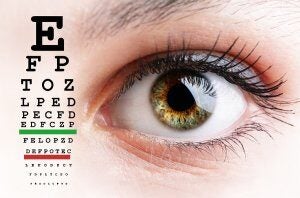 If you experience any eye abnormalities, such as eye pain or a sudden loss in vision, you should see an eye doctor promptly. However, it’s also important to schedule routine visits with an ophthalmologist near Chicago. There are many eye conditions that do not result in symptoms or may not cause symptoms right away. By visiting an ophthalmologist for routine eye exams, you’re safeguarding your healthy vision for a lifetime.
If you experience any eye abnormalities, such as eye pain or a sudden loss in vision, you should see an eye doctor promptly. However, it’s also important to schedule routine visits with an ophthalmologist near Chicago. There are many eye conditions that do not result in symptoms or may not cause symptoms right away. By visiting an ophthalmologist for routine eye exams, you’re safeguarding your healthy vision for a lifetime.
Vision
An important component of a routine eye exam at an optical center involves checking your vision. For children, this is particularly critical because normal vision development has a direct effect on academic success. Children with impaired vision cannot see the chalkboard or their homework assignments clearly, and they may fall behind. However, vision exams for adults are also necessary to ensure that their current prescription is correct. Without an accurate prescription for eyeglasses or contact lenses, it can be difficult to fulfill job responsibilities and carry out day-to-day tasks.
Eye Diseases
A routine eye exam involves much more than just checking your vision. Your eye doctor will also evaluate your eyes for any signs of diseases. He or she will check for signs of glaucoma, retinal disorders, macular degeneration, and diabetic retinopathy. By detecting these eye diseases as early as possible, you can become informed about your treatment options and ways of preventing further damage.
Eye Problems
There are many other eye conditions that your ophthalmologist may detect during a routine eye exam. For example, your eye doctor can tell if you have strabismus, or an improper eye alignment. This condition interferes with depth perception and may lead to amblyopia, which in turn can cause irreversible vision impairment.
Systemic Conditions
Did you know that eye doctors can often detect systemic health problems in patients? An ophthalmologist can let you know if your eyes are displaying minute changes that could signal a serious health issue, which means you can begin receiving treatment from your physician as soon as possible. For example, an ophthalmologist can often detect the early signs of high cholesterol levels and high blood pressure. Eye doctors can also assess whether the tiny blood vessels in your eyes are leaking and whether the macula is swollen. These changes indicate that you may have diabetes.

